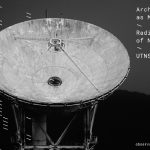Week 6: 2/28
Stress-testing Observation Scores (Instructions)
“The first examples of what were to become Fluxus event scores date back to John Cage’s famous class at The New School, where artists such as George Brecht, Al Hansen, Allan Kaprow, and Alison Knowles began to create art works and performances in musical form. One of these forms was the event. Events tend to be scored in brief verbal notations. These notes are known as event scores. In a general sense, they are proposals, propositions, and instructions. Thus, they are sometimes known as proposal pieces, propositions, or instructions.”
the Fluxus P e r f o r m a n c e Workbook
edited by Ken Friedman, Owen Smith and Lauren Sawchyn
a Performance Research e-publication 2002
“Paradigm (for Dick Higgins)
Locate an object, not spatially isolated from other objects of its kind nor different from them in any significant way, and designate it the current existing model for all such objects. Observe how the distinctiveness of that object emerges under these conditions.”
Fluxus Event Score, by Peter Frank, 1983
In-class workshop
Class Workshop: Observation Dictionary
We will re-visit the discussion around the definition of “observation” and what it means in the context of your specific research practices.
First Group Workshop: Limiting
We will use the definitions coming out of the previous dictionary exercise. The class will be assigned into groups to discuss the ten instructions that each participant has identified at home. As a group, do the following:
- Put aside anything that is not specifically about observation
- Put aside anything that in its entirety can NOT be done in 30 min (Or could you adjust it?)
- Put aside anything that can NOT be applied to an object of someone else’s research (Or could you refine it?)
Narrow down to two instructions per student.
Second Group Workshop: Assessing
Take the two final instructions of somebody else and join the new group you will be assigned to.
Use the rubric we will provide to discuss the instructions, add comments and ideas where applicable.
Before you leave class today, you have to sign up for an individual time slot next week. You only have to come at that designated time.
For next week
Think through and answer the following:
- Workshop logistics: Title of the “score” we will be participating in. Where is the workshop held? How is the furniture in the room set up? What is the lighting? Will there be sound? How many chairs? What props? Are you using specialized instruments? What do participants need to bring (try to keep this cheap and easy)?
- Readings: How do the readings support / seed the workshop?
Parameters: 2-3 short readings; please keep the total pages to less than 20 (excerpts with contextual summary works well). Bring the reading to our individual meetings next week.





Comments by Pascal